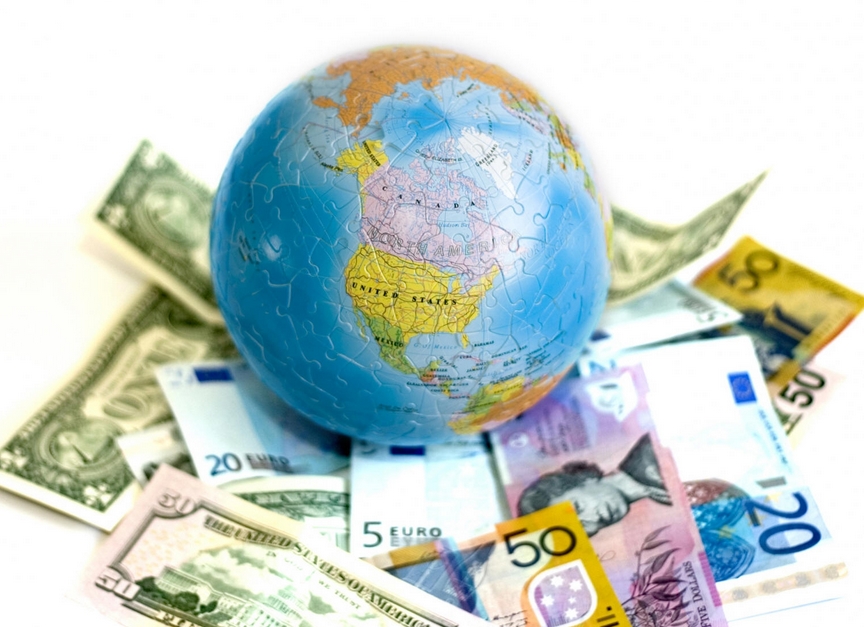
Navigating the Current Landscape: Challenges and Opportunities in the World Economy
The world economy is an intricate tapestry of interconnected markets, policies, and global forces that shape the financial landscape. As we navigate through the 21st century, the challenges and opportunities within the world economy are more dynamic and complex than ever before. In this article, we will explore key aspects of the global economic scenario, addressing both the obstacles that nations face and the potential pathways to sustainable growth and prosperity.
The Impact of Global Events on Economies:
The world economy is no stranger to shocks and disruptions. Recent events such as the COVID-19 pandemic and geopolitical tensions have underscored the vulnerability of interconnected economies. The pandemic, in particular, revealed the fragility of global supply chains, the importance of public health infrastructure, and the need for coordinated international responses. As we move forward, building resilience against such shocks will be a priority for nations worldwide.
Digital Transformation and Technological Innovation:
In the midst of challenges, technological advancements present a beacon of opportunity. The ongoing digital transformation is reshaping industries, creating new economic sectors, and influencing the nature of work. Automation, artificial intelligence, and the Internet of Things are not just buzzwords but transformative forces that have the potential to drive productivity, efficiency, and economic growth. Nations that invest in education, research, and innovation are likely to position themselves at the forefront of this technological revolution.
Sustainable Development and Environmental Concerns:
As the global community grapples with the impacts of climate change, sustainable development has become a focal point for economic policies. Countries are increasingly recognizing the importance of balancing economic growth with environmental stewardship. The transition to renewable energy, the promotion of sustainable practices in industries, and the integration of environmental considerations into economic decision-making are essential steps toward building a resilient and eco-friendly global economy.
Trade and Globalization:
While globalization has contributed to economic growth and increased interconnectedness, it has also exposed vulnerabilities in the form of trade imbalances and geopolitical tensions. The world economy is now witnessing shifts in trade dynamics, with nations reevaluating their dependencies and diversifying supply chains. Striking a balance between economic openness and safeguarding national interests will be a delicate task for policymakers in the years ahead.
Inclusive Economic Growth:
Addressing income inequality and promoting inclusive economic growth are pressing challenges for the world economy. Disparities in wealth distribution can lead to social unrest and hinder long-term economic stability. Policies that focus on education, social welfare, and creating opportunities for marginalized communities are crucial for fostering a more equitable and sustainable global economy.
Government Policies and Fiscal Stimulus:
Government policies play a pivotal role in shaping the economic landscape. In response to crises, fiscal stimulus measures are often employed to spur economic recovery. However, striking the right balance between short-term relief and long-term fiscal responsibility is a delicate task. Effective governance, transparent policies, and strategic fiscal decisions are vital components of a resilient and adaptive economic framework.
The Role of International Organizations:
International organizations, such as the International Monetary Fund (IMF) and the World Bank, play a crucial role in providing financial assistance, promoting economic stability, and offering policy advice to member countries. Strengthening the collaboration and effectiveness of these institutions is essential for fostering a cooperative and coordinated approach to global economic challenges.
In the face of an ever-evolving global landscape, the world economy stands at a crossroads. The challenges are substantial, but so too are the opportunities for positive change and growth. Navigating this intricate terrain requires a collective effort from nations, businesses, and individuals. By addressing issues such as technological innovation, sustainable development, trade dynamics, inclusive growth, and effective governance, the world can build a more resilient, equitable, and prosperous economic future. As we move forward, the lessons learned from past crises and the adaptability of nations will shape the trajectory of the world economy in the years to come.